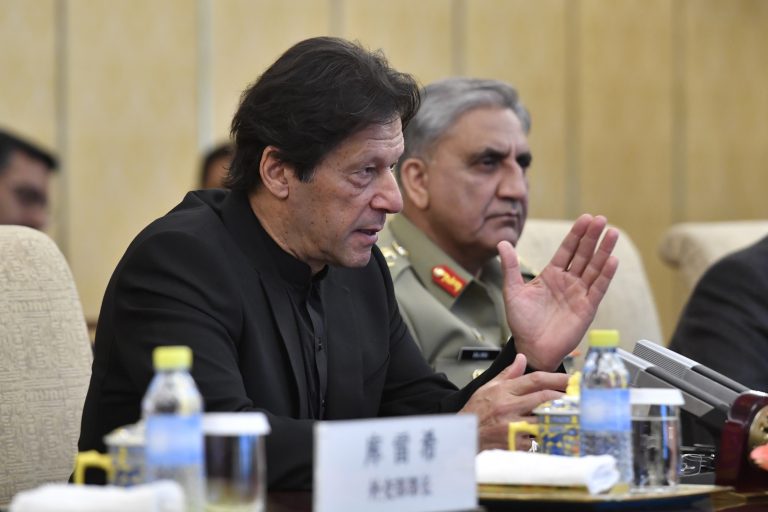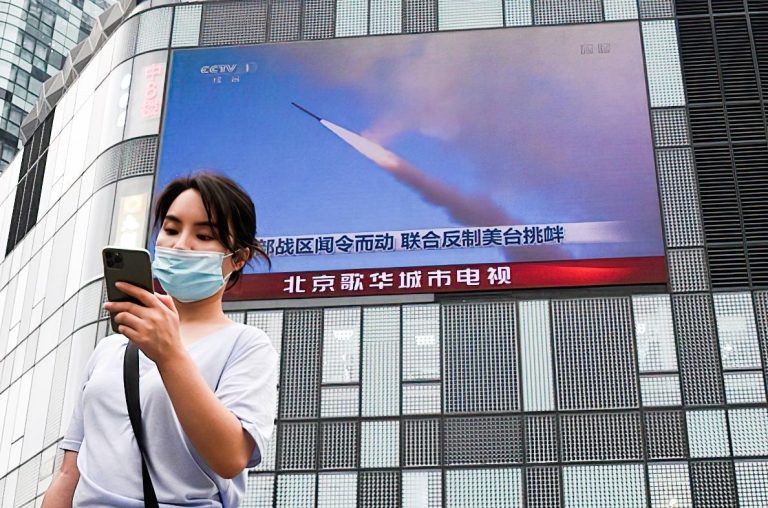Amid a sharp position on the geopolitical chessboard, Chinese leader Xi Jinping and Russian Federation President Vladimir Putin have lost an ally after Pakistan’s Imran Khan was removed from office during a no-confidence vote.
Khan was removed after several allies and a key coalition party deserted him during the vote, according to an April 9 Reuters wire release.
Axios stated Khan lost the vote in the 342-seat parliament, with 174 votes in favor of his ousting, two votes over the number required to reach a majority.
Regime change?
According to Khan, his downfall revolves around inciting the wrath of the United States government after proceeding with a scheduled visit to Russia on Feb. 24, shortly after the Kremlin launched its invasion of Ukraine.
RELATED ARTICLES:
- NATO Sets Its Gaze on Xi Jinping
- EU Parliament Hears Beijing Has a ‘Red Line’ That Russia Should Not Cross
- UK Government ‘Quietly’ Permits Chinese Takeover of Britain’s Largest Semiconductor Plant
Khan made the allegations during a televised address to the nation during the week of March 28, according to Republic World.
Success
You are now signed up for our newsletter
Success
Check your email to complete sign up
The outlet stated that Khan had brought the contents of a diplomatic cable containing details of U.S. involvement to the National Security Committee (NSC) on March 27.
A rough translation of the address published on Twitter showed that Khan alluded, based on the alleged contents of an internal diplomatic cable, to the country’s Ambassador to the United States being told by a U.S. official that Washington was displeased with his visit to Russia.
The official was told that Khan was single-handedly responsible for meeting with Putin, and that if Khan were to survive the coming no-confidence vote it would bring trouble to the country.
Khan also alleged that the U.S. official told the Ambassador that if Khan were to lose the vote, however, Pakistan would be forgiven.
Republic World stated that the NSC issued a statement after the meeting that “expressed concern over the non-diplomatic language used in the cable, saying it was tantamount to interference in the internal matters of Pakistan.”
According to India.com, Khan doubled down on his position against Donald Lu, U.S. Department of State Assistant Secretary of the Bureau of South and Central Asian Affairs, in a second televised address on April 8.
Washington had formally stated on three separate occasions that Khan’s allegations contain “no truth,” the outlet reported.
How Khan fell
In an alternative theory to the reasons behind Khan’s downfall, April 9 reporting by the BBC stated that Khan, a former cricket star, came to power in the first place with the blessing of Pakistan’s powerful military and intelligence services.
According to the article, “a number of sources told the BBC” that the no-confidence vote had been planned in advance with the military and opposition parties “sounding out potential defectors from within his party and coalition allies” while the military publicly made clear they were going to remain “neutral” on the vote.
The article posited that the conflict emerged from a jockeying for position for the military’s top seat between current leader General Qamar Javed Bajwa and head of the country’s spy agency, Inter-Services Intelligence, Lieutenant General Faiz Hameed.
Sources told the BBC that nonetheless, Khan’s behind-the-scenes support had suddenly vanished, “One defecting member of Mr Khan’s party told the BBC he and other parliamentarians used to receive ‘calls’ from the intelligence services, directing them on what to do.”
“‘We used to be manhandled,’ he said indignantly. However, once Lt Gen Faiz Hameed left office, the ‘calls’ stopped. ‘Now the army is not interfering,’ he added.
RELATED ARTICLES:
- Imran Khan Targeted in Project Pegasus Spyware Scandal Alongside Macron
- ‘Chinese Spy Cameras’ Found in Pakistan Senate Secret Ballot
- Biden China Policy Coordinator Co-Authored 2015 Paper Advocating America Install CCP’s Belt and Road Initiative in Afghanistan
The BBC also made a notedly slanted reference of Khan’s claims surrounding his Ambassador’s allegations of U.S. pressure when it stated that “most analysts” had dismissed Khan’s interpretation “as a deliberate exaggeration of a diplomatic cable sent by the Pakistani ambassador in Washington.”
April 10 reporting by the New Indian Express quoted Pakistan Foreign Minister Shah Mahmood Qureshi, who told reporters that the United States had “categorically asked us not to proceed with the Russia tour” back in March.
“Before we [the government] leave, I want to bring this to your knowledge that the national security adviser of the United States called our national security adviser and categorically asked us not to proceed with the Russia tour,” said Quershi.
He asked, “Where in the world does any sovereign state gets direction from other countries and which independent country accepts such directions?”
A young global leader
Reuters noted that after Khan’s ouster, a leader from the Pakistani Muslim League (PML) will be positioned to take the reigns as Prime Minister during a vote on April 11.
On April 9, Republic World noted that PML Vice President Maryam Nawaz had called for the immediate arrest of Khan and the Speaker and Deputy Speakers of the National Assembly, noting that the Speaker had refused to vote against Khan.
According to 2013 reporting by Pakistan’s Express Tribune, Nawaz is the daughter of former Prime Minister Nawaz Sharif and was a 2013 graduate of the globalist think tank World Economic Forum’s (WEF) Young Global Leaders training school.
The WEF describes itself as the “international organization for public-private cooperation,” boasts multiples of the world’s largest corporations as partners, and is privately funded by dozens of international and U.S.-based financial behemoths such as JP Morgan Chase, Softbank, Sequoia Capital, Blackrock, and Goldman Sachs.
While some Twitter pundits speculate Khan’s ouster will result in the installation of Maryam as leader, April 9 reporting by Al Jazeera states that current PML leader, 70-year-old Shehbaz Sharif, is set to become the next Prime Minister.
Shehbaz is Maryam Sharif’s uncle.
A loss for Beijing
Also in February, Khan also notably visited Beijing to visit with Xi Jinping, where according to NewsX, the purpose was to seek a $3 billion loan from the People’s Republic of China (PRC).
The article noted that while the funds were to stabilize foreign currency reserves, an additional $2 billion was sought from Russia and Kazakhstan to support a railway project.
The outlet also stated Khan was humiliated as a result of being forced to conduct two meetings with high ranking Chinese officials via virtual meeting instead of in-person during his visit.
The Borgen Project notes in an article that serves as an advertorial for the PRC’s Belt and Road Initiative, that Pakistan entangled itself with the Party starting in 2013, where the self-styled “China-Pakistan Economic Corridor” had earmarked a staggering $62 billion in debt focusing on infrastructure and energy.
The article notes, however, that in the case of a power plant joint venture in Gwadar where three Chinese companies are beneficiaries, the Pakistan economy only enjoys 9 percent of the facility’s revenues, a systemic characteristic of BRI agreements.













